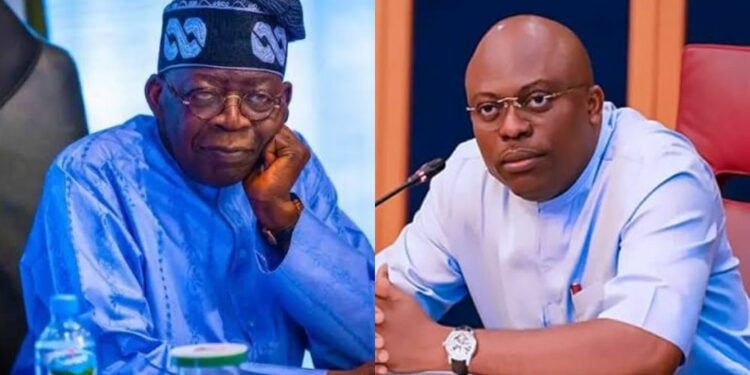A prominent member of the All Progressives Congress (APC) in Ekiti State, Senator Ayodele Arise, has challenged those who continue to criticise President Bola Ahmed Tinubu’s imposition of a state of emergency in Rivers State last March.
Tinubu declared a state of emergency in Rivers State during a national broadcast, suspending Governor Siminalayi Fubara, Deputy Governor Ngozi Odu, and all elected members of the state House of Assembly for six months. The president later appointed Ibokette Ibas, a retired vice admiral, as administrator “to manage the affairs of the state in the best interest of the good people of Rivers State.”
The six-month emergency rule has expired, and the governor, his deputy and the suspended lawmakers have resumed office.
The Peoples Democratic Party and the African Democratic Congress have continued to condemn Tinubu’s actions, labelling them as a threat to democracy.
Speaking to journalists over the weekend, Senator Arise pointed out that actions taken by Fubara, such as the demolition of the state Assembly building, posed a significant threat to representative government.
The senator, who represented Ekiti North Senatorial District from 2007 to 2011, recalled the bombings of oil installations in Rivers State prior to the emergency proclamation, which he argued was detrimental to the economic stability of the country.
He said, “By and large, we must thank Mr. President for the decision he made; the situation in Rivers State at the time the emergency rule was implemented was nearly spiralling out of control. The demolition of the very structure of democracy, the state Assembly, meant that lawmakers could not convene, and the oil installations were under attack, necessitating the emergency rule that the President had to declare at that time…
“Governor Fubara’s actions against the state Assembly and the subsequent demolitions left ample room for third-party intervention, particularly from the President. As the President of the Federation, given the increasing tensions in Rivers, it is a crucial state considering our revenue sources. Rivers contributes a substantial amount to the federation, as do other states in the Delta region. Instigating violence there would drive away the engineers working on the oil rigs and those residing in the Port Harcourt area. If the region becomes ungovernable and people live in fear, the President would have failed in his responsibilities if he had not taken action.”
“I believe Mr President’s actions will ensure peace in Rivers, even though I am not privy to any peace negotiations. The governor has clearly stated his desire for peace. Those who think there must be ongoing discord between him and the minister of the Federal Capital Territory, Nyesom Wike, should reconsider their stance so that peace can prevail for the residents of Rivers State.”
Arise also dismissed suggestions that the Rivers electorate, displeased with President Tinubu’s handling of the situation, would retaliate with their votes in the forthcoming general elections.
The APC chieftain noted that the APC secured 14 out of the 23 local government areas in Rivers State during the last presidential election, expressing confidence that the ruling party would maintain its success, particularly following its performance in the recent local government elections in the state.
He asserted that Fubara, like his counterparts in the Niger Delta region, would align himself with Tinubu’s second-term aspirations.
He remarked, “Why would Fubara not identify with him and declare his support? Even if he claims not to, Wike would still defeat him in an election. Regardless of the perspective, I believe the president is in a strong position in Rivers, especially when you consider the employment opportunities created by Wike for people from Rivers in the FCT. Those individuals will return home to work.”



